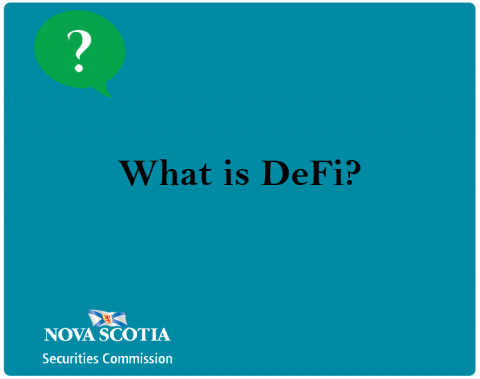Submitted by nsscadmin on

DeFi is short for decentralized finance. DeFi uses blockchain technology to construct a form of finance that does not rely on the traditional financial intermediaries like brokerages, exchanges, or banks to offer financial instruments.
In short, DeFi offers financial services, like lending, banking and investing that are decentralized. Two other key things that differentiate DeFi from traditional finance is that it uses digital assets instead of fiat currency, and it currently operates outside regulatory authority. To try and maintain order without any regulatory oversight DeFi operates on the blockchain, the same way cryptocurrencies like Bitcoin and Ethereum do. This means they use a decentralized digital ledger to record and monitor all transactions.
Transactions are handled through smart contracts. These self-executing contracts include the terms of agreement between two parties engaging in the DeFi transactions. This could be lender to loan receiver, or buyer to seller for example. The agreement exists across the decentralized ledger on the blockchain network and is trackable and irreversible once executed. There are also decentralized exchanges that facilitate person-to-person trading without use of an intermediary to hold the funds or assets being traded.
The Nova Scotia Securities Commission is not advocating the use of DeFi for investing or other financial transactions. We are providing this information to investors so that if they encounter DeFi they can better understand what it is and how it works. As DeFi is still very new, it has been a popular vehicle used by fraudsters and scam artists to steal unsuspecting people’s money.
If you are interested in investing through DeFi remember that:
- it is unregulated so there are no consumer protections in place;
- any money you deposit or contribute through DeFi is not insured and if you lose your money, you may have no avenue through which to get it back;
- it is still a new and changing technology so make sure you fully understand what you are doing before sending any funds or assets; and
- as with any investment do not investment more than you can afford to lose.
